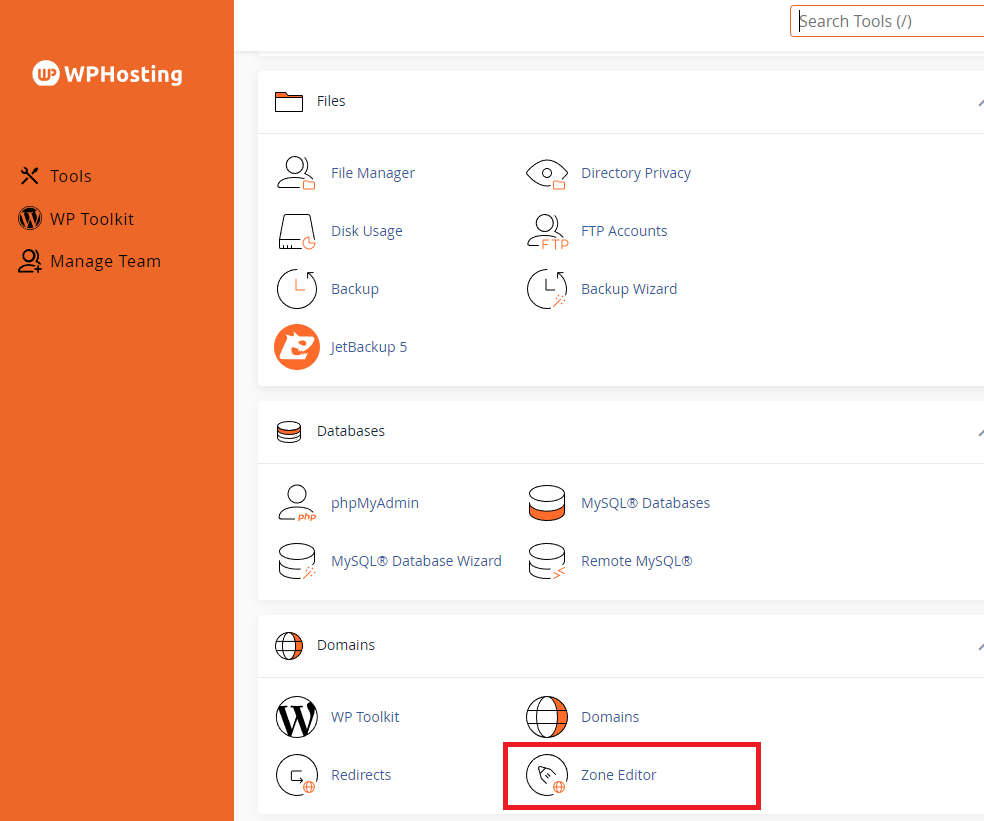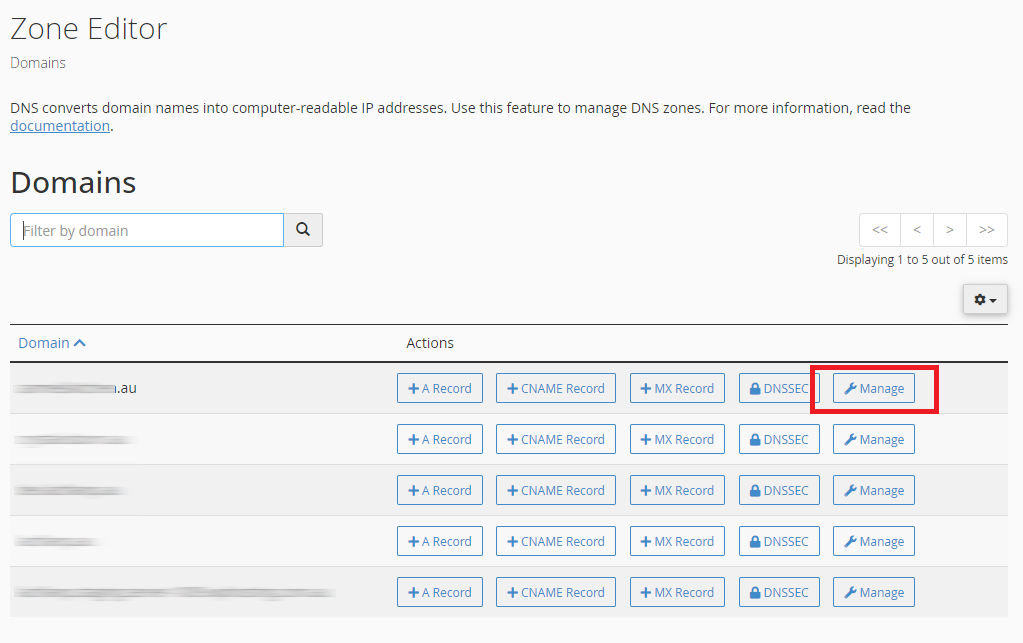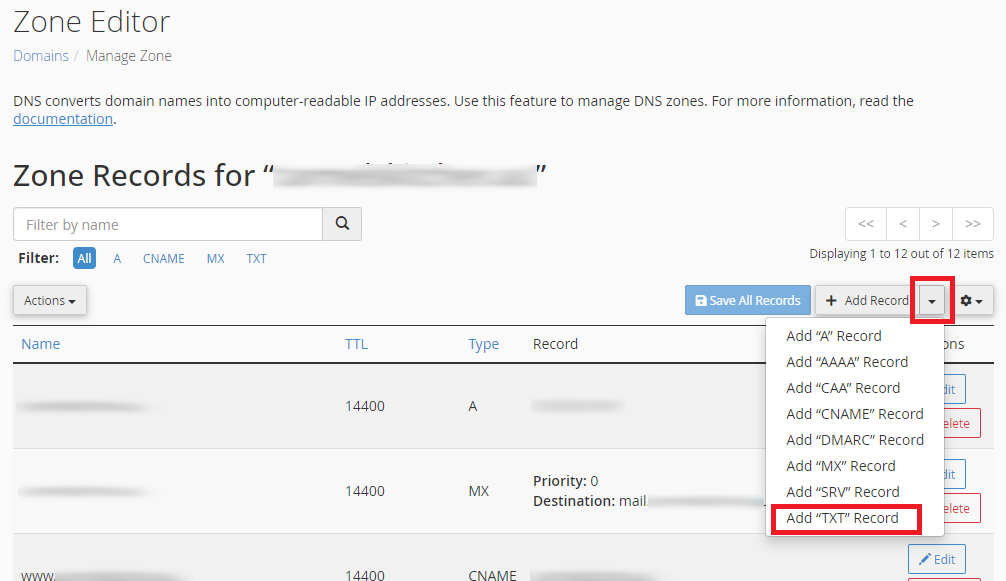This topic covers processes relating to a cPanel service.
You will need to be logged into the cPanel account to follow these steps.
If you’re not sure how to access your cPanel service — please, follow this guide
before continuing: How do I login to cPanel?
What is SPF?
Sender Policy Framework (SPF) is a type of security feature for email. It works by confirming if an email comes from an approved sender. An SPF record is used to list senders that are authorised to send mail on behalf of your domain.
When an email reaches its destination, SPF verifies the sender’s authorization. If the sender matches the record, the system accepts the email; if not, it flags or rejects the email as suspicious, spam, or junk. Consequently, this process reduces spam and phishing attempts.
The default SPF record for WP Hosting
- v=spf1 +mx +a include:_spf.wphosting.com.au ~all
If your domain name is using WP Hosting Nameservers, you can make
changes to the DNS records via your cPanel account’s “Zone Editor” tool
To add an SPF record
2. Navigate to the “Zone Editor” tool located under the Domains sub-menu (you can also search for ‘zone’ via the search bar in the top-right corner).

3. Next, locate the domain you want from the list and click the “Manage“
button to the right.

4. Next, click the small down arrow on the “Add Record” button.
5. Then, choose “Add TXT Record” from the list.

6. Then, add your domain to the ‘Name’ column in the ‘Valid zone name’ field.
7. Next, type or paste the TXT/SPF record into the ‘Record’ column’s ‘Text’ field. Then, use either the default WP Hosting record or the one provided by your mail host.
The default SPF record for WP Hosting is:
- v=spf1 +mx +a include:_spf.wphosting.com.au ~all

8. Click the “Save Record” button when you’re done.
It’s always worth checking in ‘Zone Editor’ to ensure the SPF record you’ve created contains include:_spf.wphosting.com.au or mail from your service may have difficulty reaching the intended recipient.